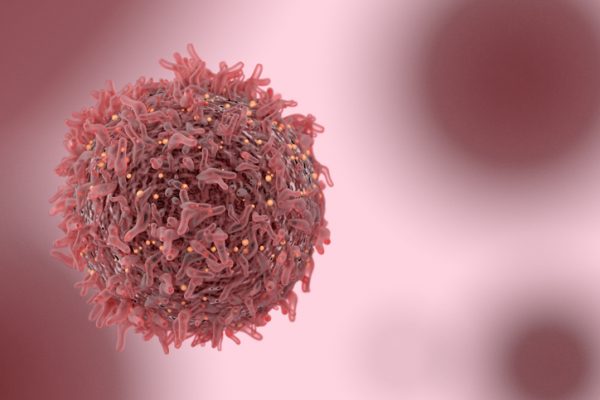
Clinical data presented at an ongoing oncology conference has bolstered the efficacy profile of a drug approved in November for a form of leukemia.
Data from a Phase III study of Tokyo-based drugmaker Astellas Pharma’s Xospata (gilteritinib) in acute myeloid leukemia are being presented at the American Association of Cancer Research meeting, currently underway in Atlanta. The data are in AML patients relapsed or refractory after prior treatment and whose disease harbors a mutation of the gene FLT3.
Xospata received Food and Drug Administration approval in November based on earlier results from the same study, titled ADMIRAL, but that only showed the drug produced a complete remission with full or partial hematological recovery – known as the CR/CRh rate – in 21 percent of 138 patients. The latest data show that among the 371 patients randomized in the study to receive the drug or standard-of-care chemotherapy, median overall survival (OS) was 9.3 months among the experimental group and 5.6 months among the control group.
The latest data are particularly important for Astellas because, while CR/CRh rates in AML are a signal of efficacy, they do not always predict a statistically significant improvement in OS, which remains the gold standard for the disease. For a long time, this was a source of frustration among hematologists who treat AML, leaving the field stuck with old chemotherapy drugs and a long line of failed clinical trials. However, several new agents for various forms of AML have received FDA approval in recent years.
FLT3 mutations are associated with a worse prognosis in AML and, according to some studies, occur in less than one-fifth of patients with the disease. Xospata was approved alongside a companion diagnostic, Invivoscribe Technologies’ LeukoStrat CDx FLT3 Mutation Assay.
There are currently two other FLT3 inhibitors approved, namely Novartis’s Rydapt (midostaurin), for first-line treatment of FLT3-positive AML, and Bayer’s Nexavar (sorafenib), which is approved for other cancers but used off-label in AML. While ADMIRAL excluded patients who had received prior FLT3 inhibitor treatment, it made an exception for those who had received Rydapt or Nexavar.
Although they are used in different settings of AML, one characteristic that separates Xospata and Rydapt is that the former has strong efficacy as a single agent, whereas the latter must be combined with the chemotherapy drugs cytarabine and daunorubicin. A potentially more direct competitor to Xospata could come in the form of Daiichi Sankyo’s quizartinib, which also has single-agent efficacy. In November, the FDA granted priority review to the regulatory approval application for quizartinib. The drug is also under expedited review by regulators in Japan and Europe.
Photo: CGToolbox, Getty Images










